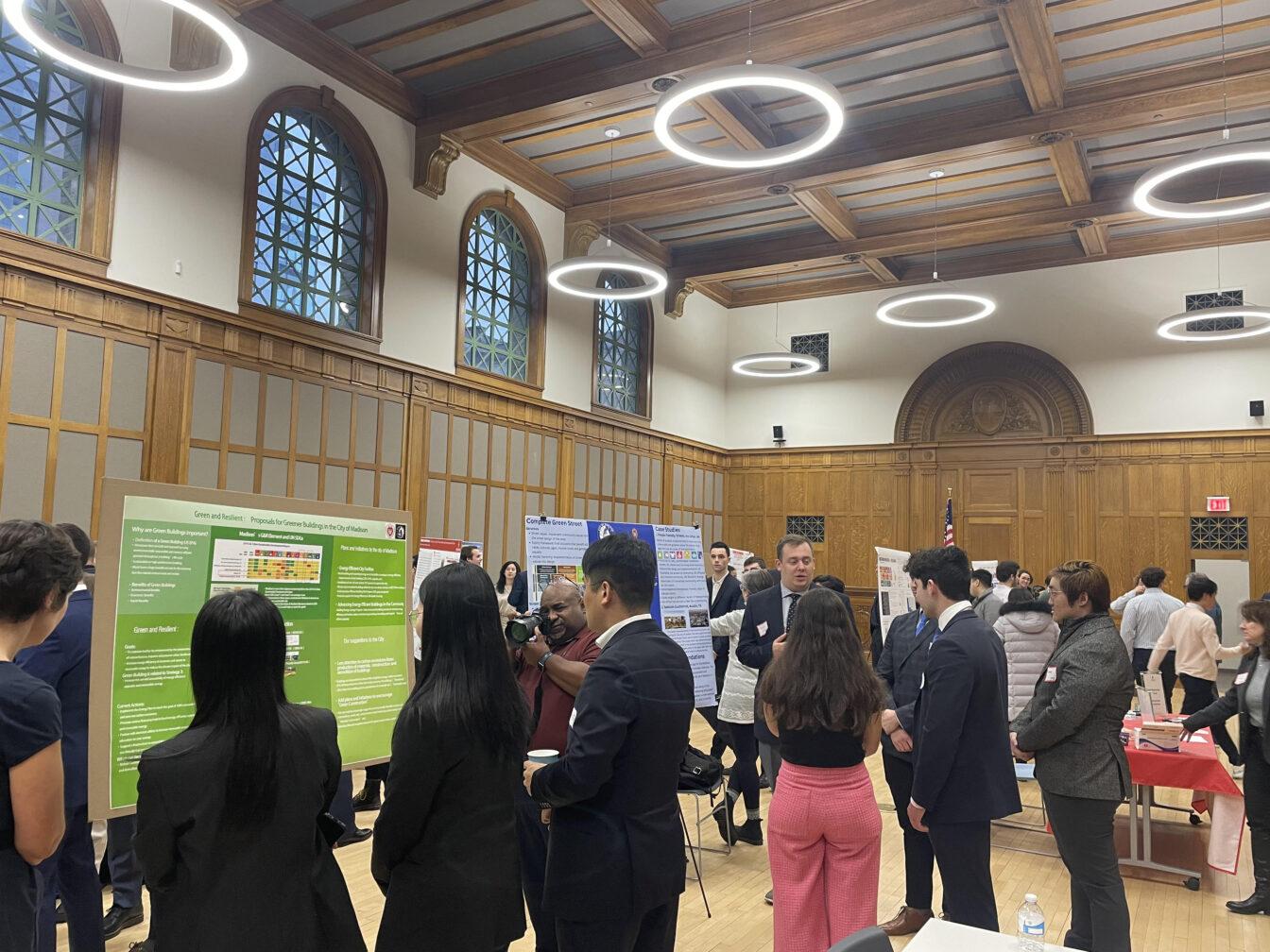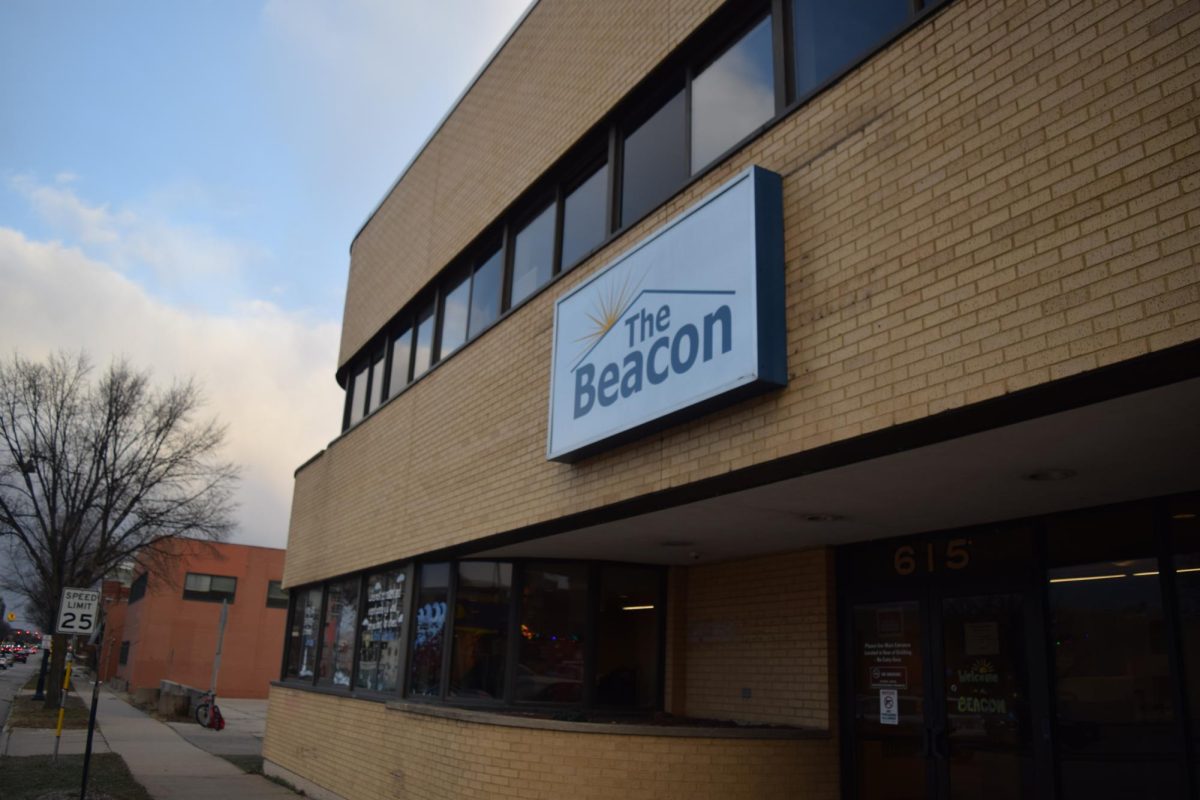The Wisconsin School of Business held its student poster session on the sustainable development strategy for the City of Madison at the Madison Municipal Building Wednesday afternoon.
Students from Professor Yongheng Deng’s Real Estate 420 and Real Estate 720 classes presented their semester findings, according to the University Alliance website.
“This work not only provides students with a high-impact educational experience, it also gives them a voice in local government issues,” Professor Deng said in an email statement to the Badger Herald.
Throughout the fall 2022 semester, the class partnered with the City of Madison through the UniverCity Alliance. UniverCity Alliance is a department within the University of Wisconsin striving to connect UW with other communities and boost the “quality and visibility of UW-Madison’s education, research, and service contribution to the high-road development of local communities that reflects the values of equity, democracy, and sustainability.”
The students are divided into 15 project groups to study the sustainable development strategy of the Mayor’s office, Deng said.
At the poster session, students presented recommendations to the city concerning varying areas of urban economics including transportation, housing and education.
UW senior Justin Ochalla’s presentation focused on the city’s potential to create better opportunities for its residents through education, innovation and economic growth.
“We were surprised to learn that [Madison public schools] are about 5% behind the state average for public schools in terms of academic performance,” Ochalla said.
Ochalla’s poster pointed out the gap in reading and math achievement between white and black students and the lack of diversity within Madison’s workforce, especially within the board of director positions. It promoted supporting the small business economy and growing the tourism sector as solutions for these issues, among other strategies.
“A lot of the funding that goes to public schools doesn’t help much,” Ochalla said. “In terms of academic performance, it had either a minimal impact or none, but it did lead to a 10-20% decrease in behavioral problems.”
Community Alternative Response for Emergency Services program releases end of year report
The course, RE 420+720: Urban and Regional Economics, culminating in these presentations, allows students to practice analyzing real estate markets while producing impactful strategies. Throughout the semester, students worked with City of Madison Performance Excellence Specialist Kara Kratowicz and Sustainability and Resilience Manager Jessica Price to consider the city’s alignment with equity, sustainability and inclusion principles, Deng said.
Students this semester built on student work from the Fall 2021 semester, when students analyzed the sustainable development component of the Imagine Madison Plan.
Student Matt Ballweg spent the semester studying potential improvements for the city’s Metro Transit system — particularly relating to the system’s travel times, sustainability, accessibility and affordability.
“We’re focusing on making more fair options like family passes and annual passes instead of having to get a monthly pass for single people and families, so they don’t have to buy separate tickets every day or month,” Ballweg said.













